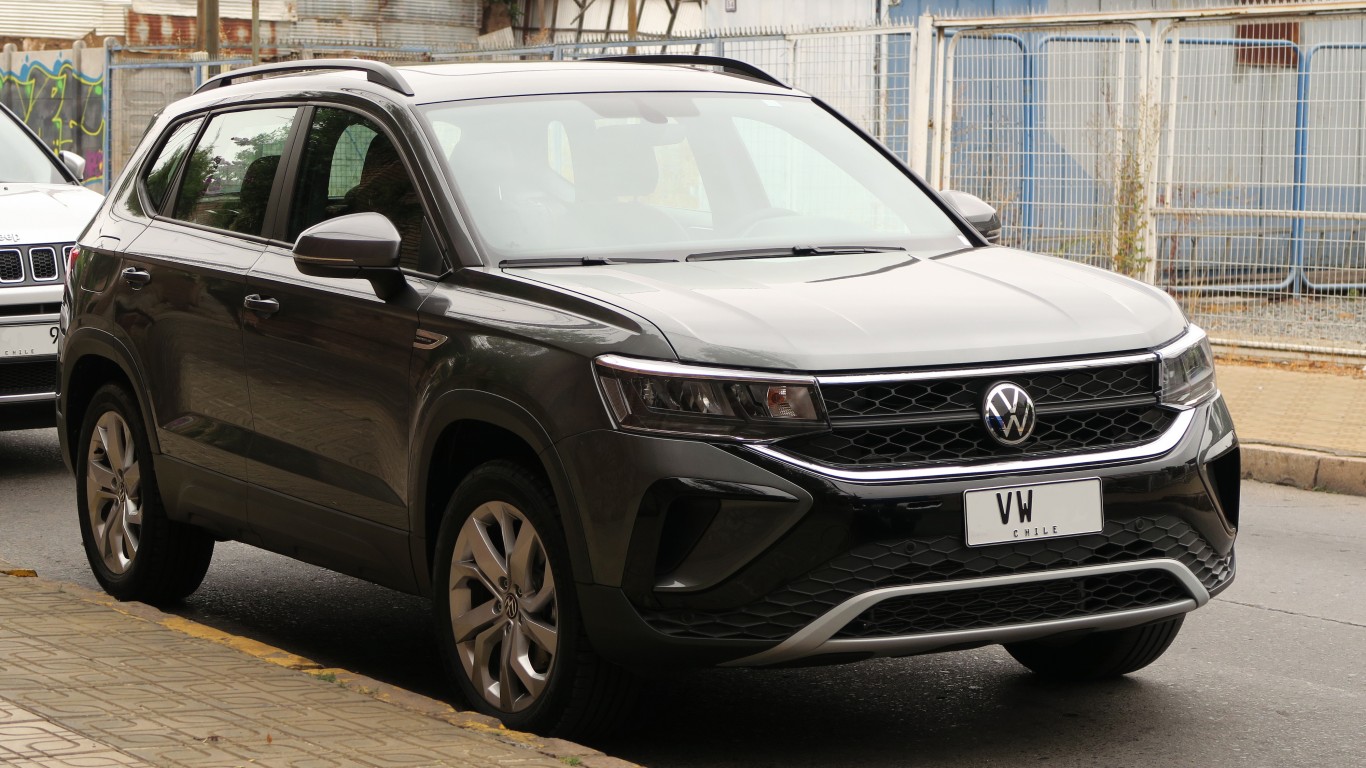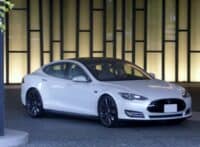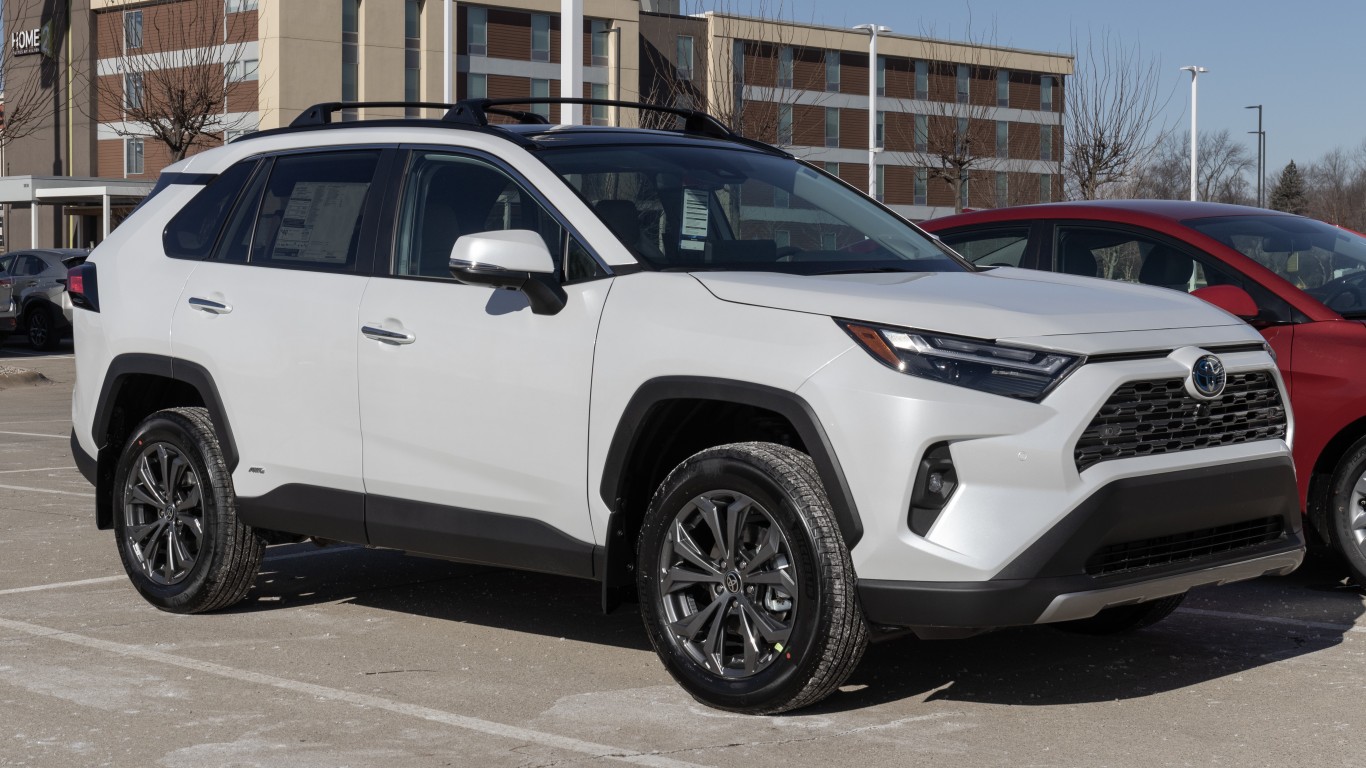
The auto industry has continued to change for centuries but nothing appears as significant changes as the changes seen in the past decade. Perhaps the most notable is the emergence of commercially successful electric vehicles. While it may seem as if the electric vehicle is a relatively new concept, it has been around for quite some time, albeit not quite as successful as it is now. But while the EV market is still finding its footing, and successfully adding to car sales, other recent shifts in the industry are now clearly established, including the dominance of the SUV.
Like EVs, Sport Utility Vehicles have also gained momentum in the U.S. Originally intended as military vehicles, SUVs gained in popularity during the 1990s and early 2000s and have certainly come a long way since the first modern-style SUV, the Jeep Cherokee (XJ), that appeared on the market in 1984. SUVs and crossovers are now the dominant auto segment in the U.S., overtaking sedans in unit sales for the first time in 2015. Just four years later, SUVs outsold sedans by a two-to-one margin. So far this year, two of the three best-selling vehicles in the U.S. are crossover SUVs – and only one of the five best-selling models is a sedan. (Here is a look at the best-selling car in America.)
SUVs have typically offered greater versatility, capability, and interior space than sedans but these advantages often came at the expense of fuel economy. This is no longer the case, however. Hybrid engines and smaller crossovers have proliferated the market, and with these advances, driving an SUV does not necessarily mean more trips to the pump. With gas prices fluctuating, it was at an all-time high in 2022, fuel efficiency is top of mind for many prospective buyers.
Using data from the Environmental Protection Agency, 24/7 Wall St. identified the new SUVs and crossovers on the market that are the most fuel-efficient, ranked by best available combined miles per gallon. We only considered vehicles for the 2023 model year, excluding plug-in hybrids and EVs. Fuel efficiency is subject to several factors for any vehicle. Some are contingent on driving habits, but those related directly to the vehicle itself include weight, ground clearance, aerodynamics, drivetrain, and engine size.
The 11 highest-ranking vehicles on this list are hybrids, which combine a traditional internal combustion engine with one or more electric motors powered by batteries. Hybrid batteries, which charge automatically, offer supplementary power, resulting in reduced fuel usage. Some of the hybrid vehicles on this list can top 40 miles per gallon.
The nine SUVs on this list not available in hybrid models generally have smaller three- or four-cylinder engines. Combined fuel economy for these non-hybrid models often tops 30 mpg.
Automakers on this list include Chevrolet, Ford, Honda, Kia, Subaru, Toyota, and Volkswagen – though most of the highest-ranking SUVs by fuel economy are made by Japanese and Korean companies. (Here is a look a the car brands Americans hate the most.)
Here are the new SUVs that are the most fuel-efficient.
See below to read our detailed methodology.
20. Mazda CX-30
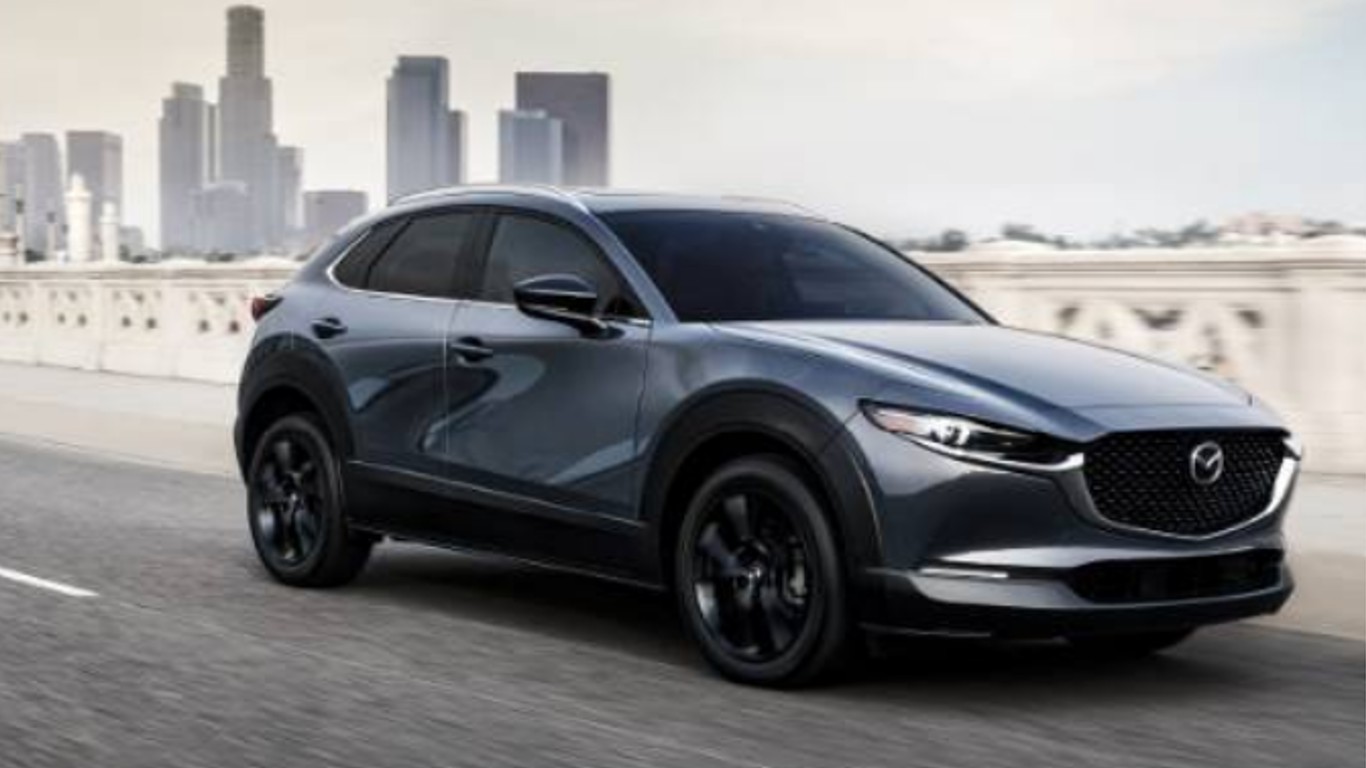
- Fuel efficiency (MPG): 22-26 city; 30-33 highway; 25-29 combined
- Available engine(s): 4 cylinder; 2.5 liter displacement
- Available drivetrain(s): 4×4; automatic transmission
- Est. annual fuel cost: $1,550 – $1,750
- Base MSRP: $22,950
19. Subaru Crosstrek

- Fuel efficiency (MPG): 22-28 city; 29-33 highway; 25-30 combined
- Available engine(s): 4 cylinder; 2.0 & 2.5 liter displacement
- Available drivetrain(s): AWD; automatic & manual transmission
- Est. annual fuel cost: $1,500 – $1,750
- Base MSRP: $23,645
18. Buick Encore
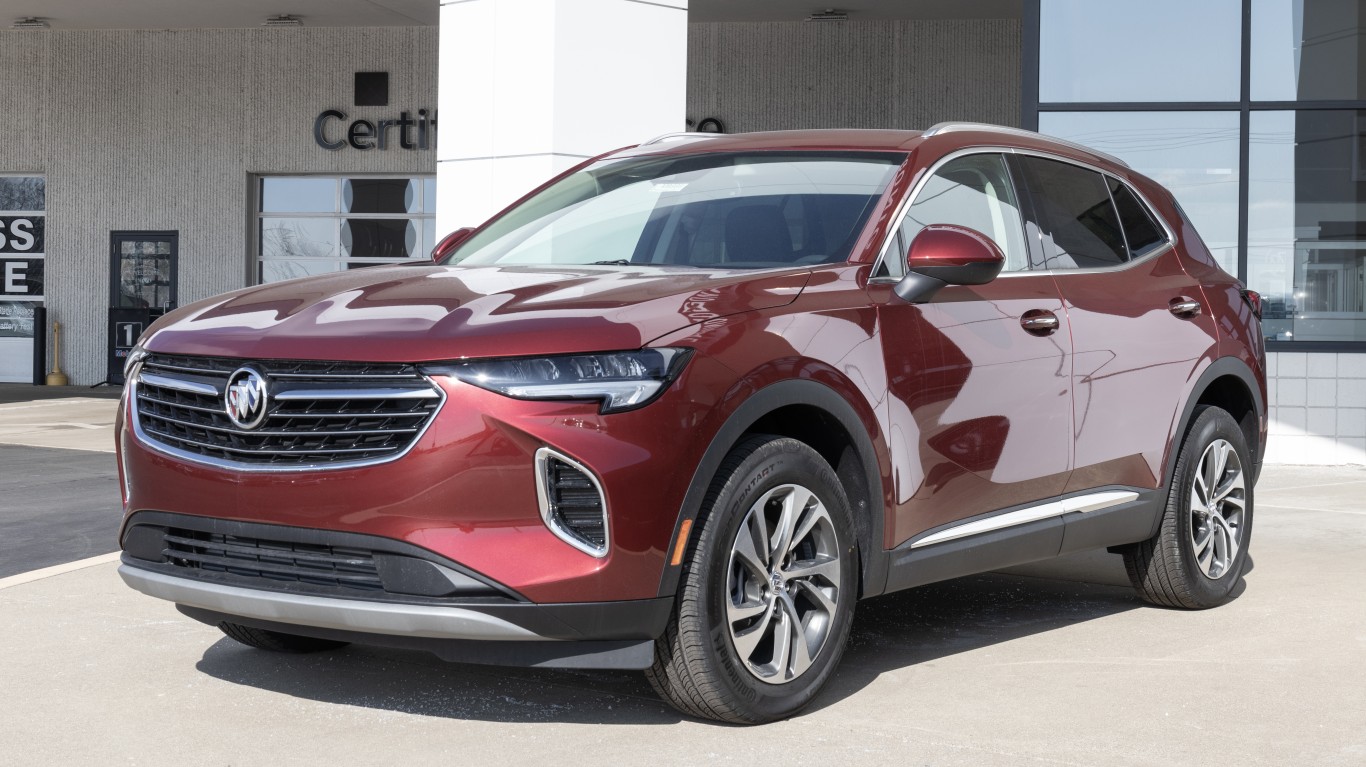
- Fuel efficiency (MPG): 26-29 city; 29-31 highway; 27-30 combined
- Available engine(s): 3 cylinder; 1.2 & 1.3 liter displacement
- Available drivetrain(s): 4×2 & AWD; automatic transmission
- Est. annual fuel cost: $1,500 – $1,650
- Base MSRP: $25,900
17. Kia Seltos
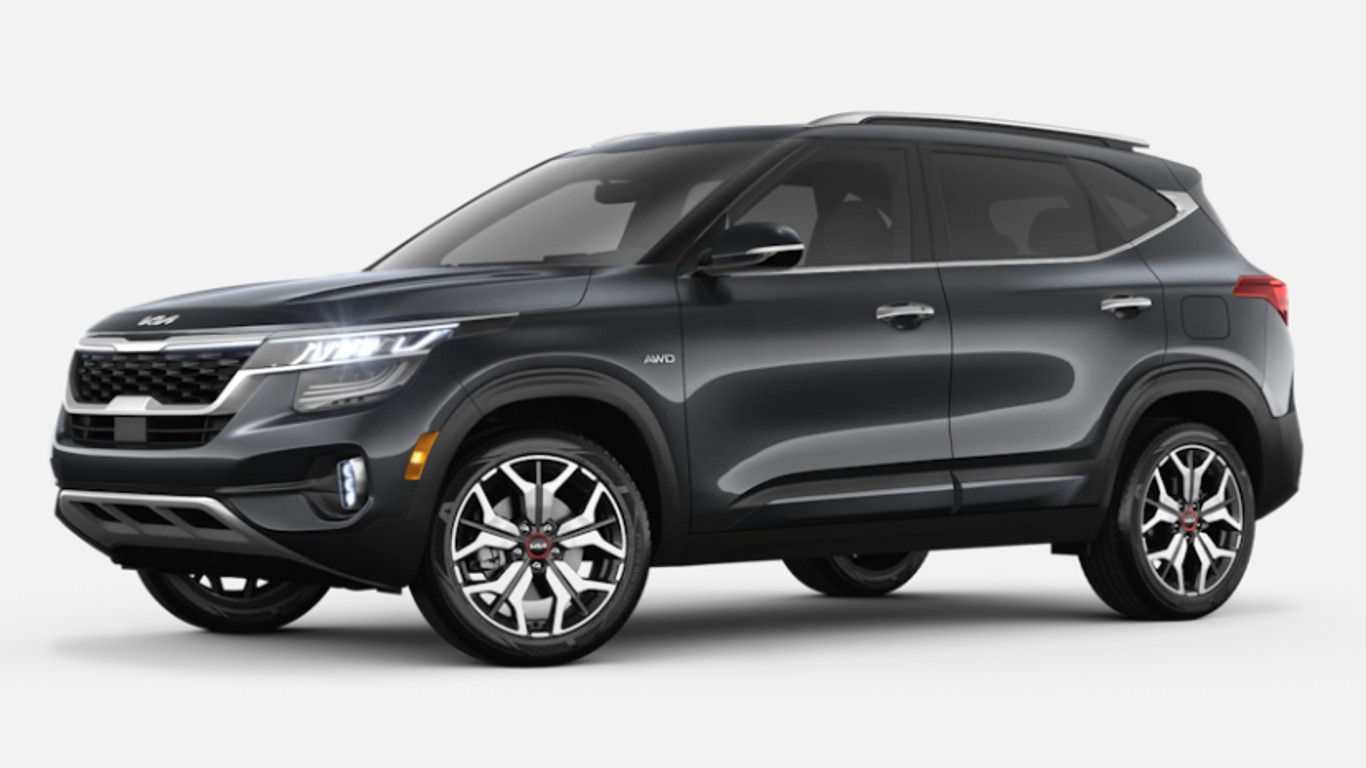
- Fuel efficiency (MPG): 25-29 city; 30-35 highway; 27-31 combined
- Available engine(s): 4 cylinder; 1.6 & 2.0 liter displacement
- Available drivetrain(s): 4×2 & AWD; automatic transmission
- Est. annual fuel cost: $1,450 – $1,650
- Base MSRP: $22,840
16. Volkswagen Taos (tied)
- Fuel efficiency (MPG): 25-28 city; 32-36 highway; 28-31 combined
- Available engine(s): 4 cylinder; 1.5 liter displacement
- Available drivetrain(s): 4×2 & AWD; automatic transmission
- Est. annual fuel cost: $1,450 – $1,600
- Base MSRP: $24,155
15. Chevrolet Trailblazer (tied)

- Fuel efficiency (MPG): 26-29 city; 30-33 highway; 28-31 combined
- Available engine(s): 3 cylinder; 1.2 & 1.3 liter displacement
- Available drivetrain(s): 4×2 & AWD; automatic transmission
- Est. annual fuel cost: $1,450 – $1,600
- Base MSRP: $22,100
14. Hyundai Kona

- Fuel efficiency (MPG): 20-30 city; 27-35 highway; 23-32 combined
- Available engine(s): 4 cylinder; 1.6 & 2.0 liter displacement
- Available drivetrain(s): 4×2 & AWD; automatic transmission
- Est. annual fuel cost: $1,400 – $2,400
- Base MSRP: $22,140
13. Toyota Corolla Cross
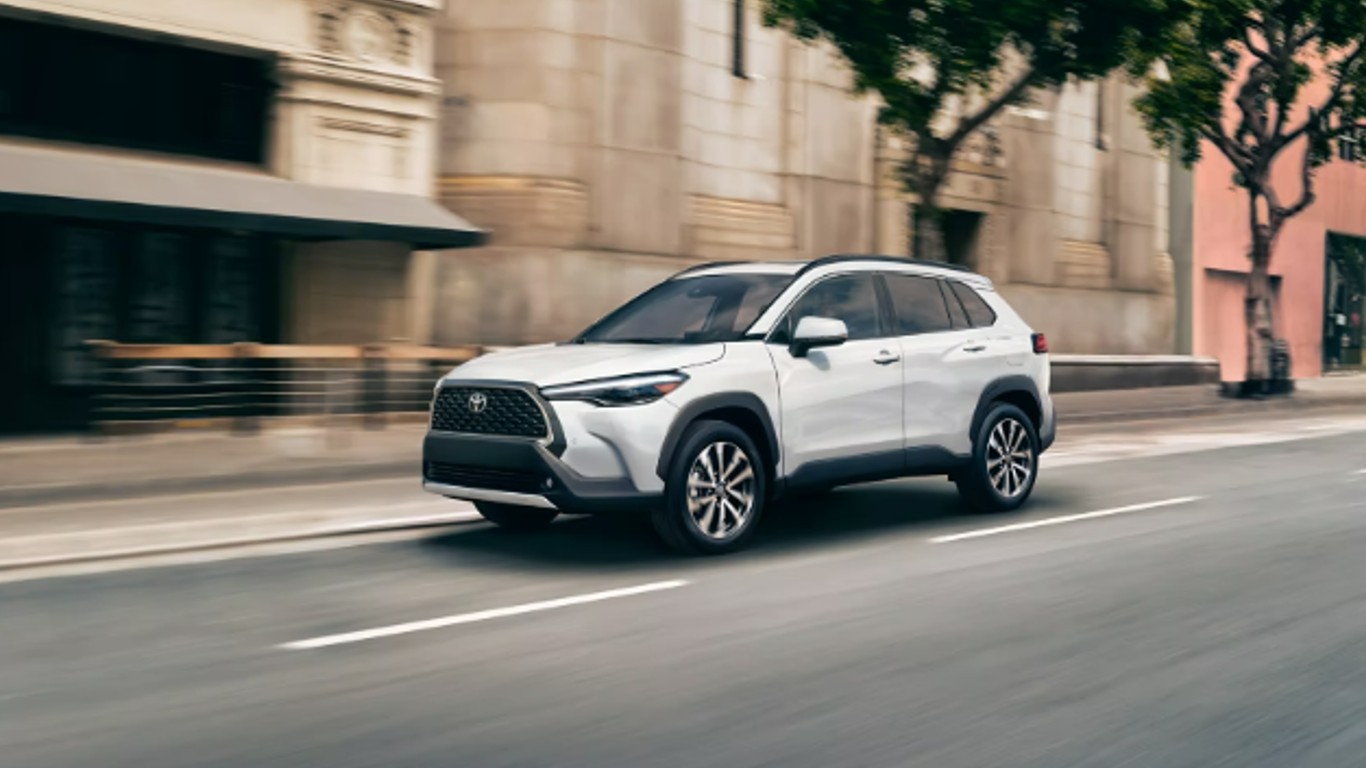
- Fuel efficiency (MPG): 29-31 city; 32-33 highway; 30-32 combined
- Available engine(s): 4 cylinder; 2.0 liter displacement
- Available drivetrain(s): 4×2 & AWD; automatic transmission
- Est. annual fuel cost: $1,400 – $1,500
- Base MSRP: $23,060
12. Nissan Rogue
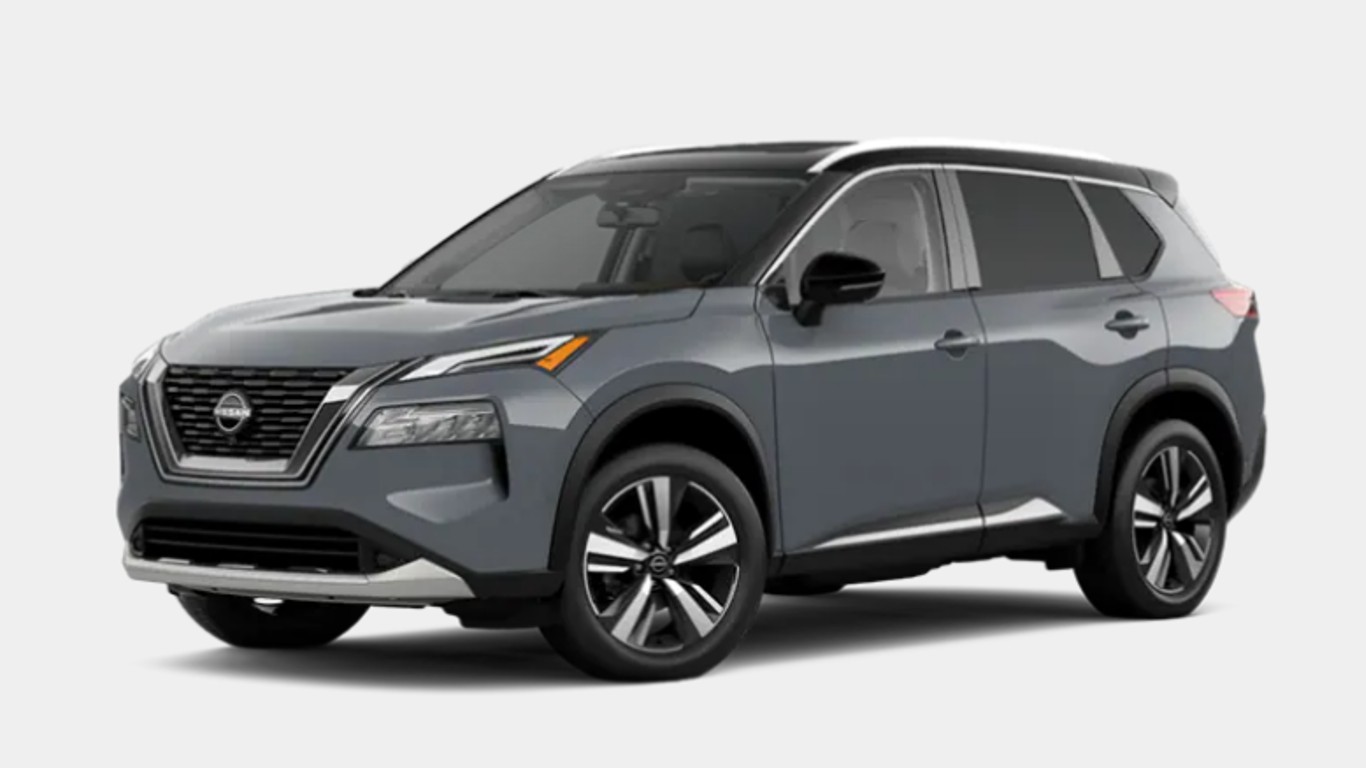
- Fuel efficiency (MPG): 28-30 city; 34-37 highway; 31-33 combined
- Available engine(s): 3 cylinder; 1.5 liter displacement
- Available drivetrain(s): 4×2; automatic transmission
- Est. annual fuel cost: $1,350 – $1,450
- Base MSRP: $27,360
11. Hyundai Santa Fe

- Fuel efficiency (MPG): 21-36 city; 25-31 highway; 24-34 combined
- Available engine(s): 4 cylinder & 4 cylinder hybrid ; 1.6 & 2.5 liter displacement
- Available drivetrain(s): 4×2 & AWD; automatic transmission
- Est. annual fuel cost: $1,300 – $1,850
- Base MSRP: $28,450
10. Lexus RX 350
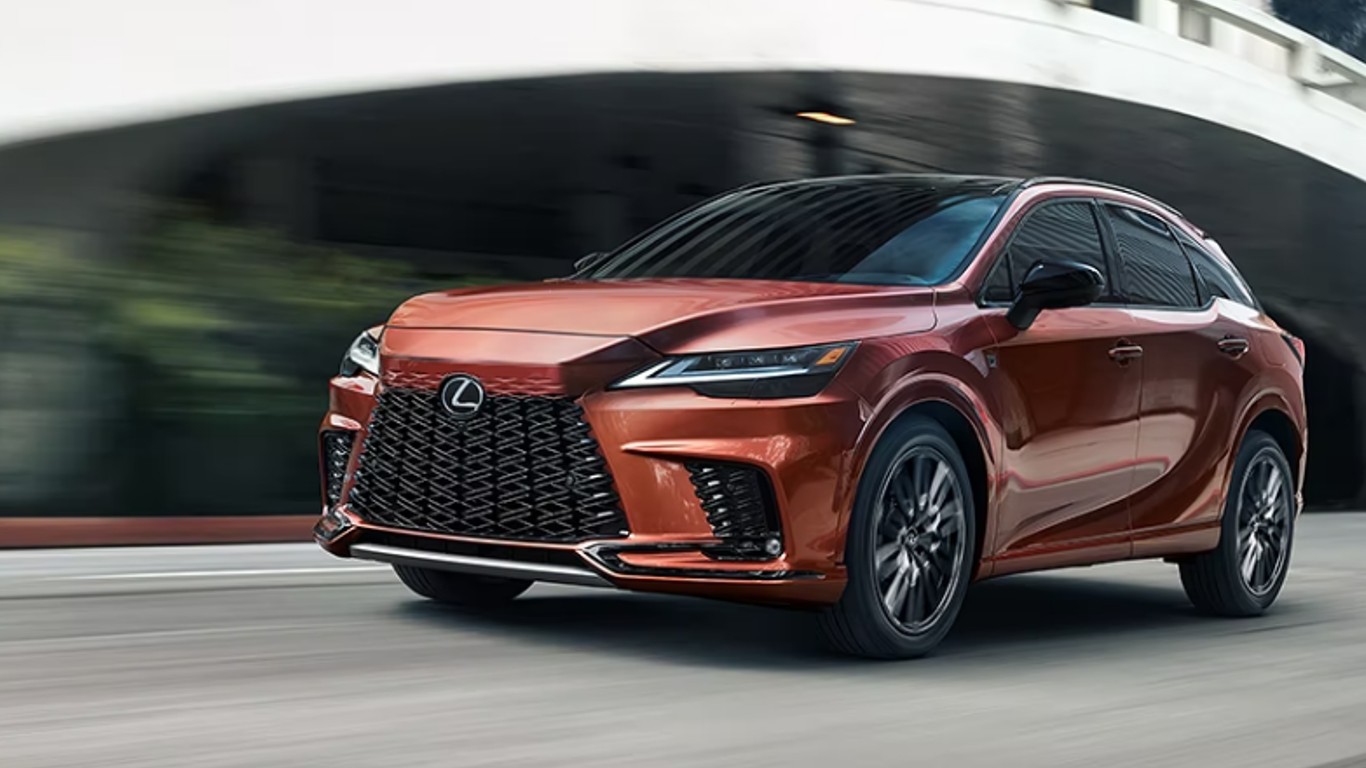
- Fuel efficiency (MPG): 21-37 city; 28-34 highway; 24-36 combined
- Available engine(s): 4 cylinder & 4 cylinder hybrid ; 2.4 & 2.5 liter displacement
- Available drivetrain(s): 4×2 & AWD; automatic transmission
- Est. annual fuel cost: $1,500 – $2,300
- Base MSRP: $48,550
9. Toyota Highlander
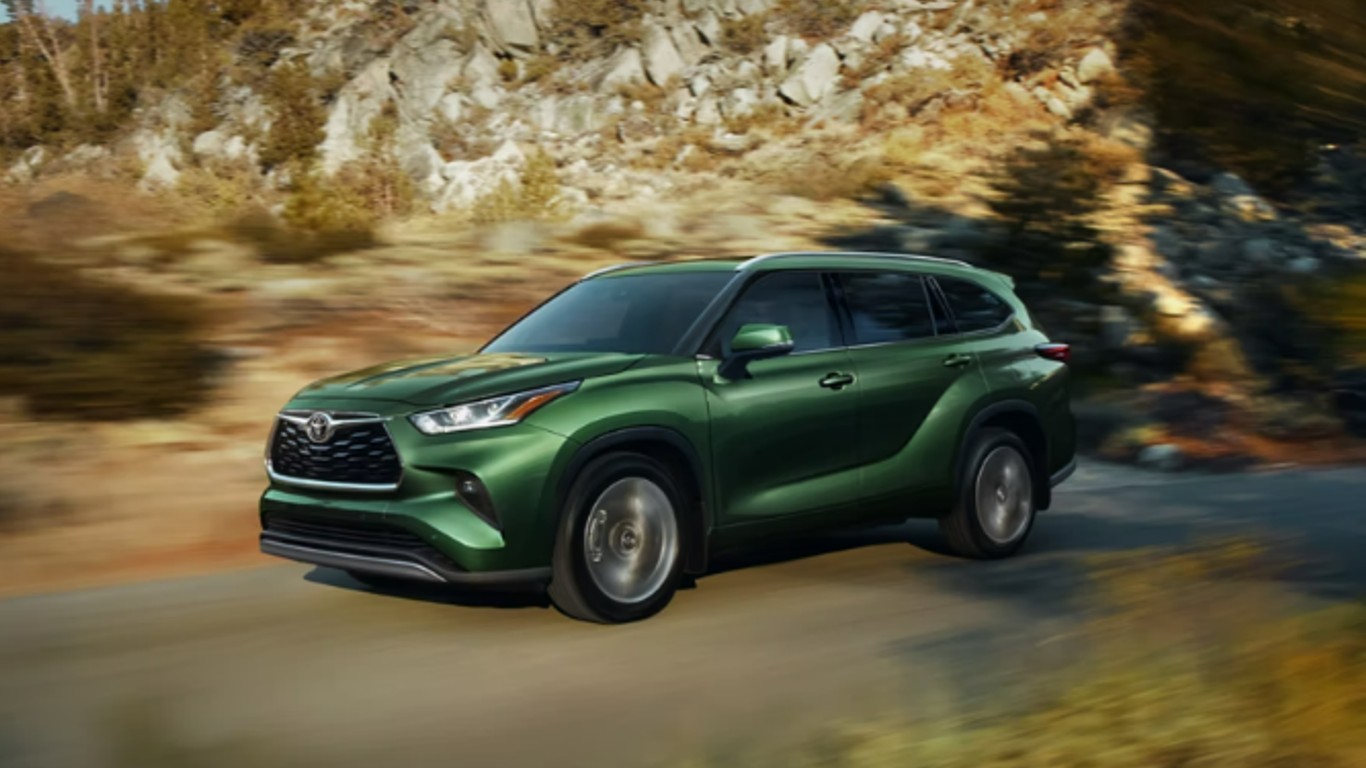
- Fuel efficiency (MPG): 21-36 city; 28-35 highway; 24-36 combined
- Available engine(s): 4 cylinder & 4 cylinder hybrid ; 2.4 & 2.5 liter displacement
- Available drivetrain(s): 4×2 & AWD; automatic transmission
- Est. annual fuel cost: $1,250 – $1,850
- Base MSRP: $36,420
8. Kia Sorento
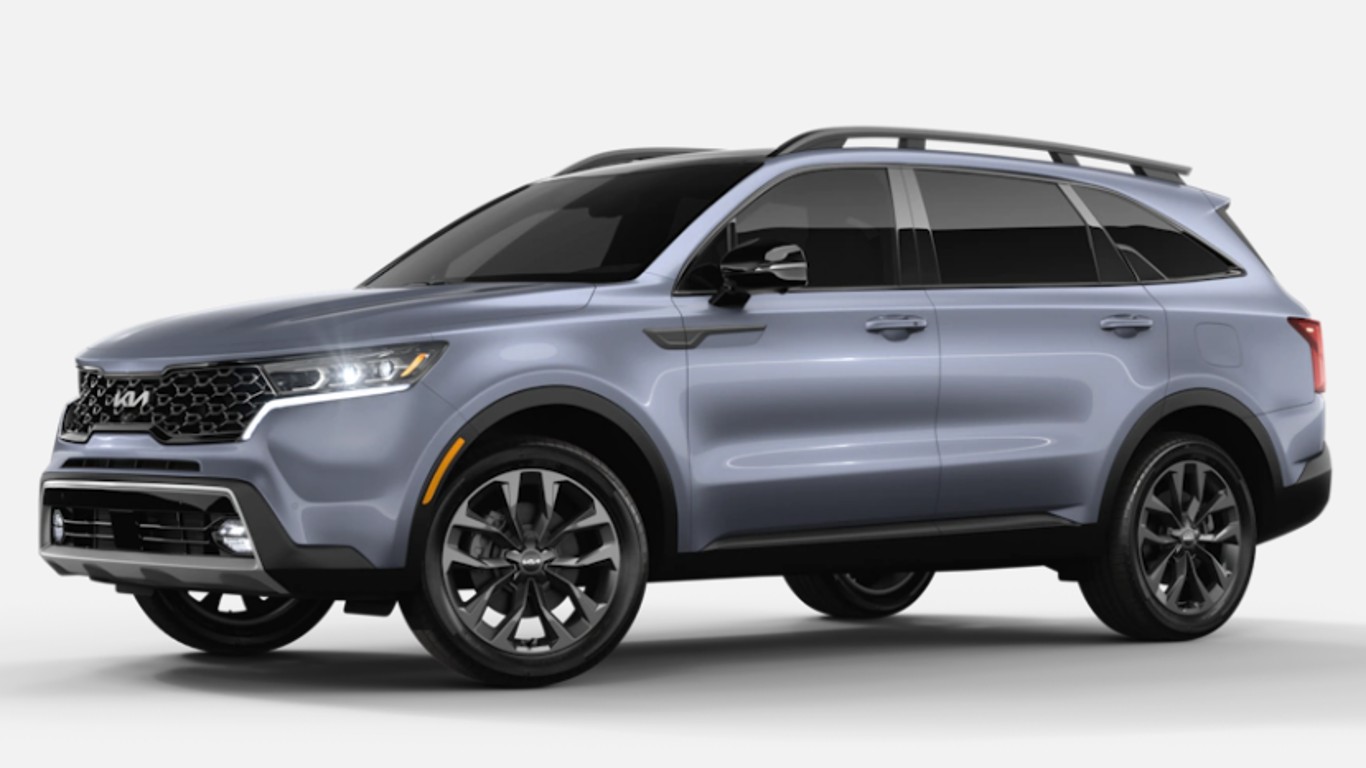
- Fuel efficiency (MPG): 22-39 city; 25-35 highway; 24-37 combined
- Available engine(s): 4 cylinder & 4 cylinder hybrid ; 1.6 & 2.5 liter displacement
- Available drivetrain(s): 4×2 & AWD; automatic transmission
- Est. annual fuel cost: $1,200 – $1,850
- Base MSRP: $29,990
7. Hyundai Tucson
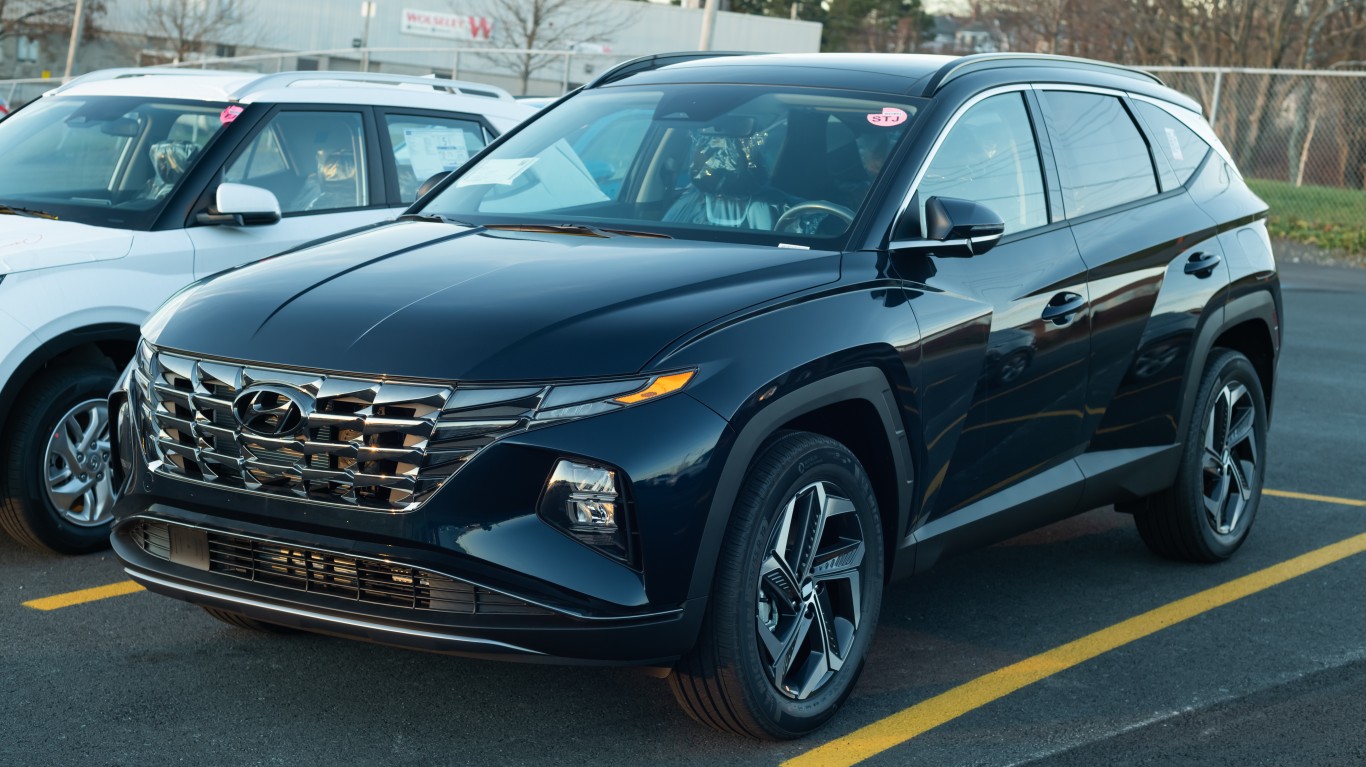
- Fuel efficiency (MPG): 23-38 city; 28-38 highway; 25-38 combined
- Available engine(s): 4 cylinder & 4 cylinder hybrid ; 1.6 & 2.5 liter displacement
- Available drivetrain(s): 4×2 & AWD; automatic transmission
- Est. annual fuel cost: $1,150 – $1,750
- Base MSRP: $26,700
6. Lexus NX 350
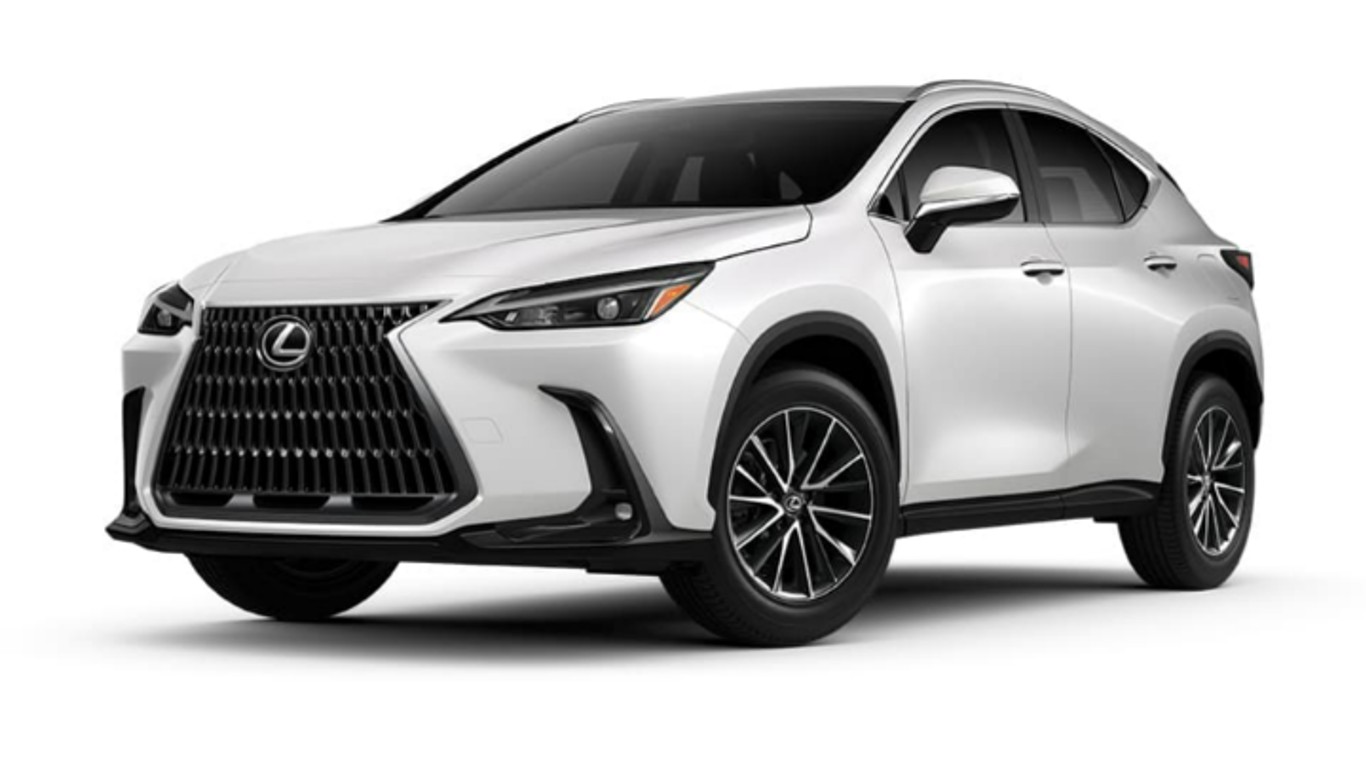
- Fuel efficiency (MPG): 22-41 city; 28-37 highway; 25-39 combined
- Available engine(s): 4 cylinder & 4 cylinder hybrid ; 2.4 & 2.5 liter displacement
- Available drivetrain(s): AWD; automatic transmission
- Est. annual fuel cost: $1,400 – $2,200
- Base MSRP: $43,965
5. Ford Escape
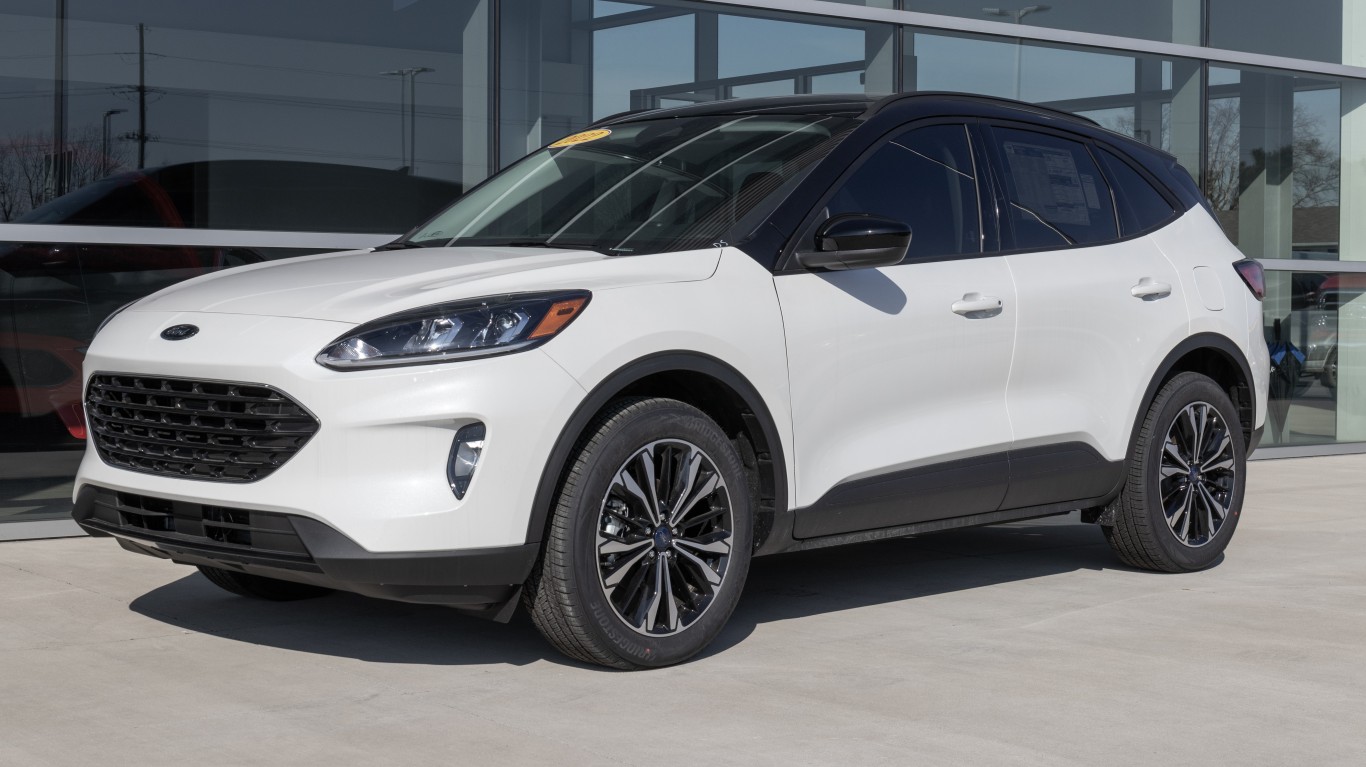
- Fuel efficiency (MPG): 23-42 city; 31-36 highway; 26-39 combined
- Available engine(s): 3 & 4 cylinder & 4 cylinder hybrid ; 1.5, 2.0 & 2.5 liter displacement
- Available drivetrain(s): 4×2 & AWD; automatic transmission
- Est. annual fuel cost: $1,150 – $1,700
- Base MSRP: $27,500
4. Toyota Venza
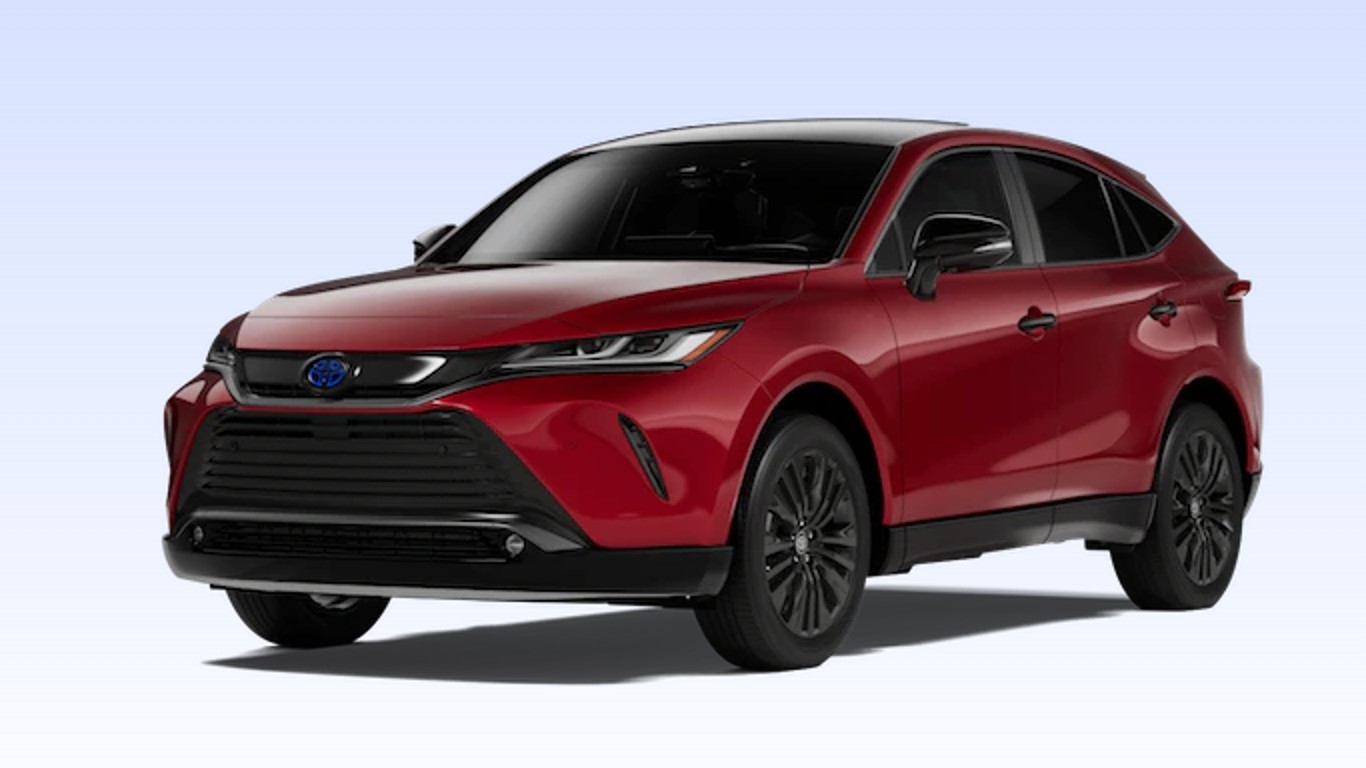
- Fuel efficiency (MPG): 40 city; 37 highway; 39 combined
- Available engine(s): 4 cylinder hybrid ; 2.5 liter displacement
- Available drivetrain(s): AWD; automatic transmission
- Est. annual fuel cost: $1,150
- Base MSRP: $34,120
3. Toyota RAV4

- Fuel efficiency (MPG): 25-41 city; 32-38 highway; 28-40 combined
- Available engine(s): 4 cylinder & 4 cylinder hybrid ; 2.5 liter displacement
- Available drivetrain(s): 4×2 & AWD; automatic transmission
- Est. annual fuel cost: $1,100 – $1,600
- Base MSRP: $27,975
2. Honda CR-V
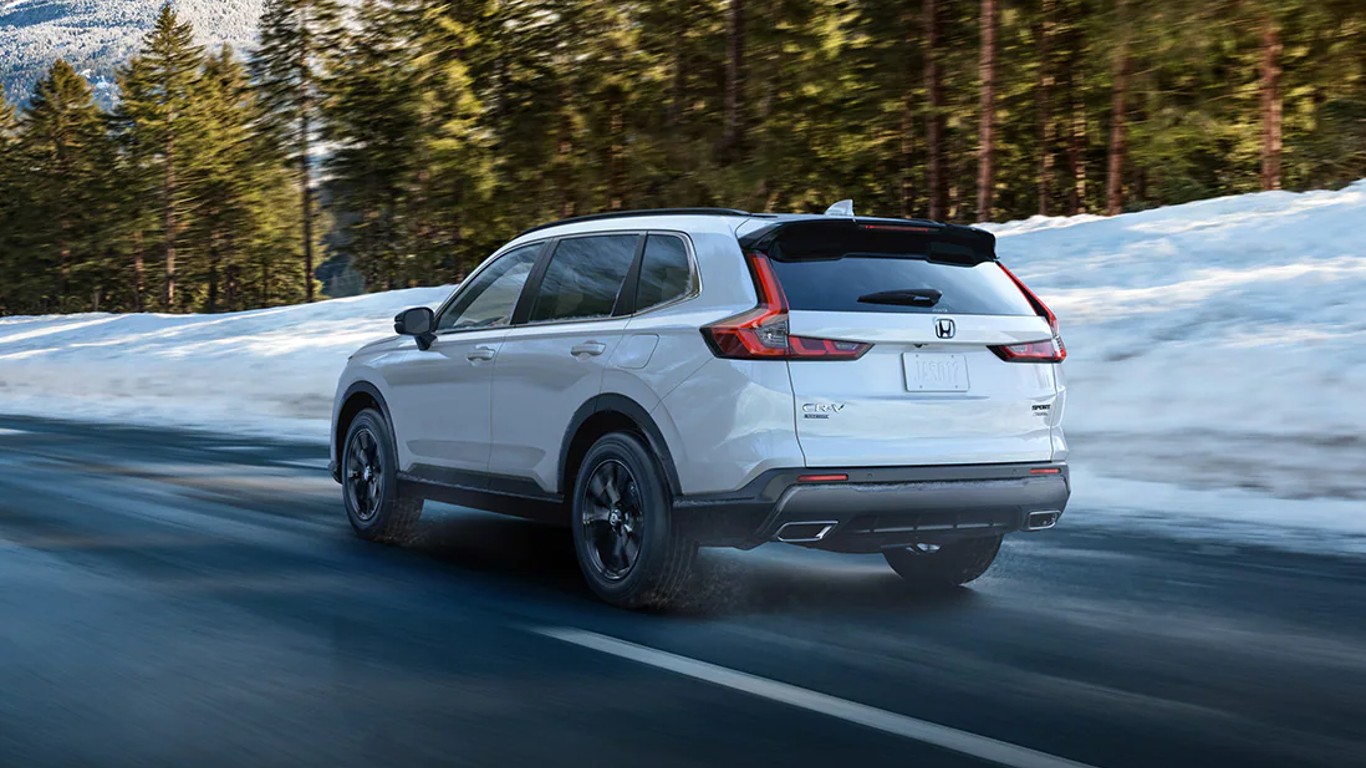
- Fuel efficiency (MPG): 27-43 city; 32-36 highway; 29-40 combined
- Available engine(s): 4 cylinder & 4 cylinder hybrid ; 1.5 & 2.0 liter displacement
- Available drivetrain(s): 4×2 & AWD; automatic transmission
- Est. annual fuel cost: $1,100 – $1,550
- Base MSRP: $31,610
1. Kia Sportage
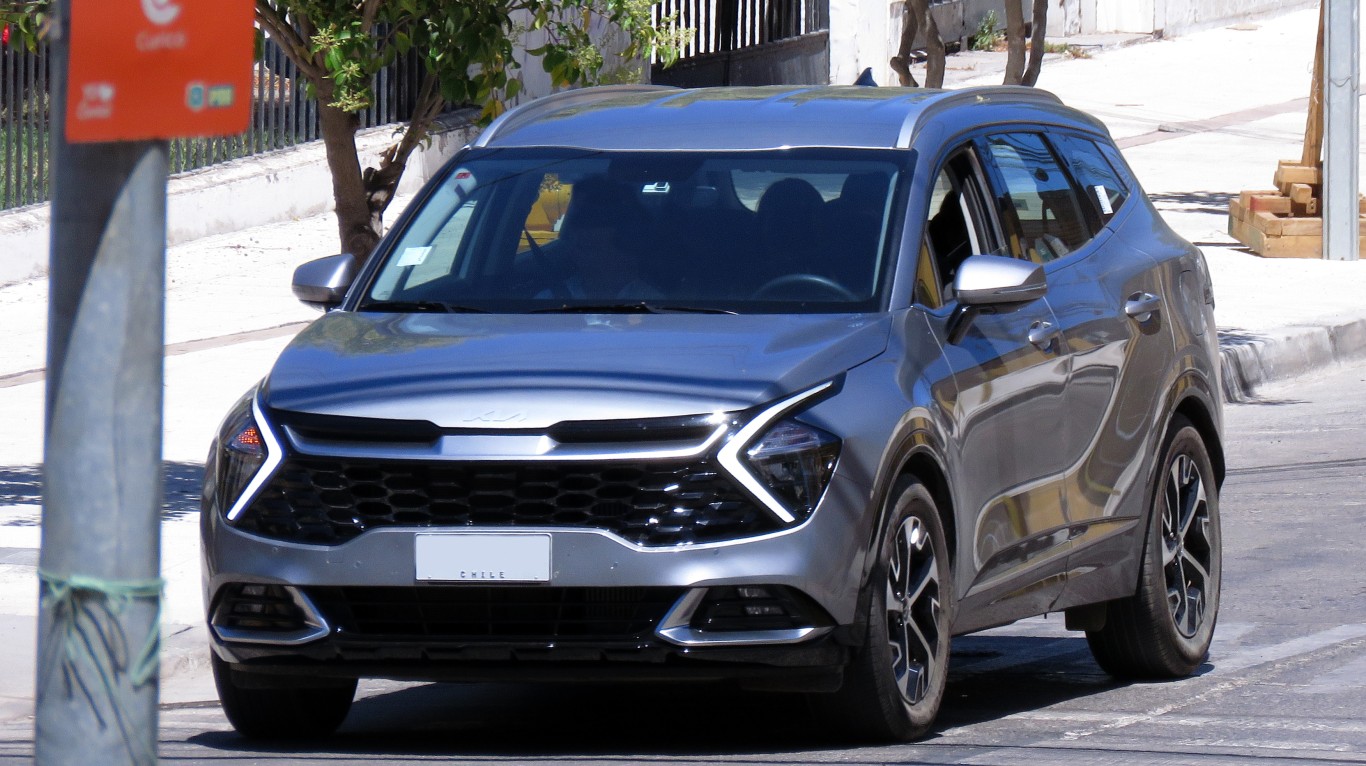
- Fuel efficiency (MPG): 23-42 city; 28-44 highway; 25-43 combined
- Available engine(s): 4 cylinder & 4 cylinder hybrid ; 1.6 & 2.5 liter displacement
- Available drivetrain(s): 4×2 & AWD; automatic transmission
- Est. annual fuel cost: $1,050 – $1,750
- Base MSRP: $25,990
Methodology
To identify the most fuel-efficient new SUVs and crossovers, 24/7 Wall St. reviewed data on estimated miles per gallon from the Environmental Protection Agency. SUVs are ranked on the highest EPA combined MPG available for each nameplate. In the case of a tie, when possible, the vehicle with the highest combined MPG floor, or the lower estimated annual fuel costs, ranks higher. We considered all small and standard-size SUVs for the 2023 model year in our analysis and did not include electric vehicles or plug-ins.
Though SUVs are ranked as the most efficient combination of engine and drivetrain for combined city and highway driving, we also provide the range of fuel efficiency for each nameplate for all models available.
Estimated annual fuel costs are also from the EPA and assume 15,000 miles of driving – 55% city and 45% highway – with fuel costs of $3.42/gallon for regular unleaded gasoline, $3.88/gallon for mid-grade unleaded gasoline, and $4.19/gallon for premium.
Want to Retire Early? Start Here (Sponsor)
Want retirement to come a few years earlier than you’d planned? Or are you ready to retire now, but want an extra set of eyes on your finances?
Now you can speak with up to 3 financial experts in your area for FREE. By simply clicking here you can begin to match with financial professionals who can help you build your plan to retire early. And the best part? The first conversation with them is free.
Click here to match with up to 3 financial pros who would be excited to help you make financial decisions.
Thank you for reading! Have some feedback for us?
Contact the 24/7 Wall St. editorial team.
